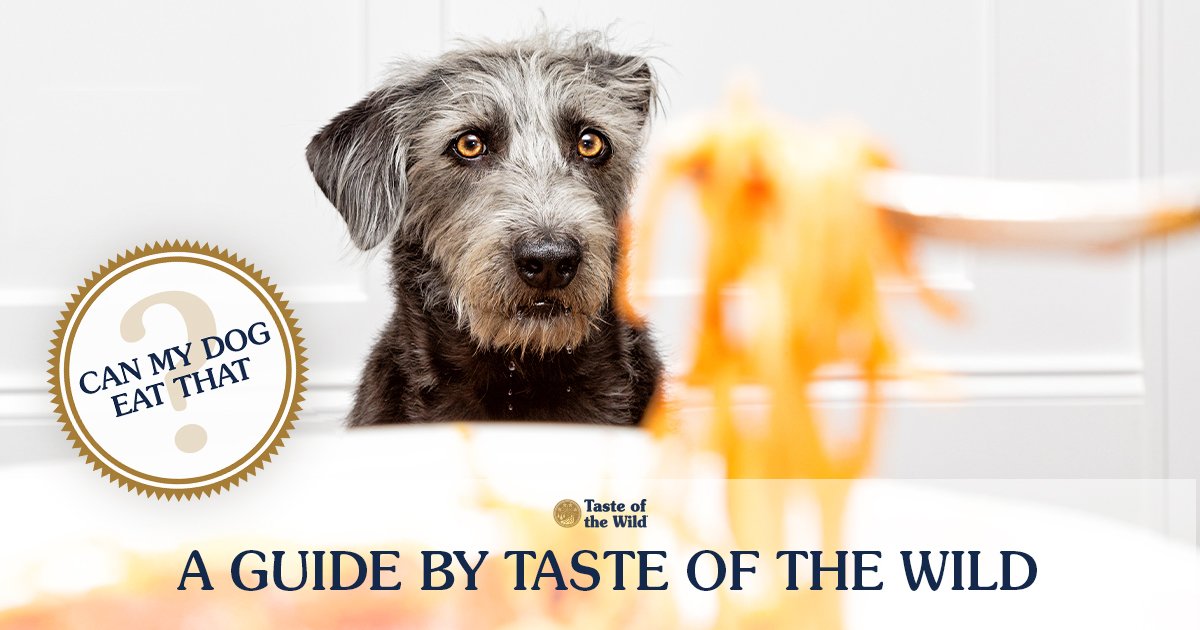
One of the most popular online searches regarding pets is the question “Can my dog eat BLANK?” The reason this query is so popular is because, for better or worse, many dogs will eat anything they can get their mouth around, especially human foods. Often, pet owners are asking the question after said item has been eaten, and they are looking for quick answers about whether they need to make a sudden trip to the veterinarian. (NOTE: If you ever have serious questions about something your pet has eaten, even the most benign human foods, call your vet immediately!)
To pre-emptively answer some of these questions, Taste of the Wild has created an ongoing and ever-growing guide that answers the question, “Can my dog eat that?” We will be limiting our questions and answers to food items, so if your dog has eaten an entire couch cushion…call your vet. Bookmark this page because it will keep growing. There’s no end to the list of human foods dogs have tried to eat, and no end to the trouble caused to the dog’s digestive system!
CAN MY DOG EAT GRAPES?
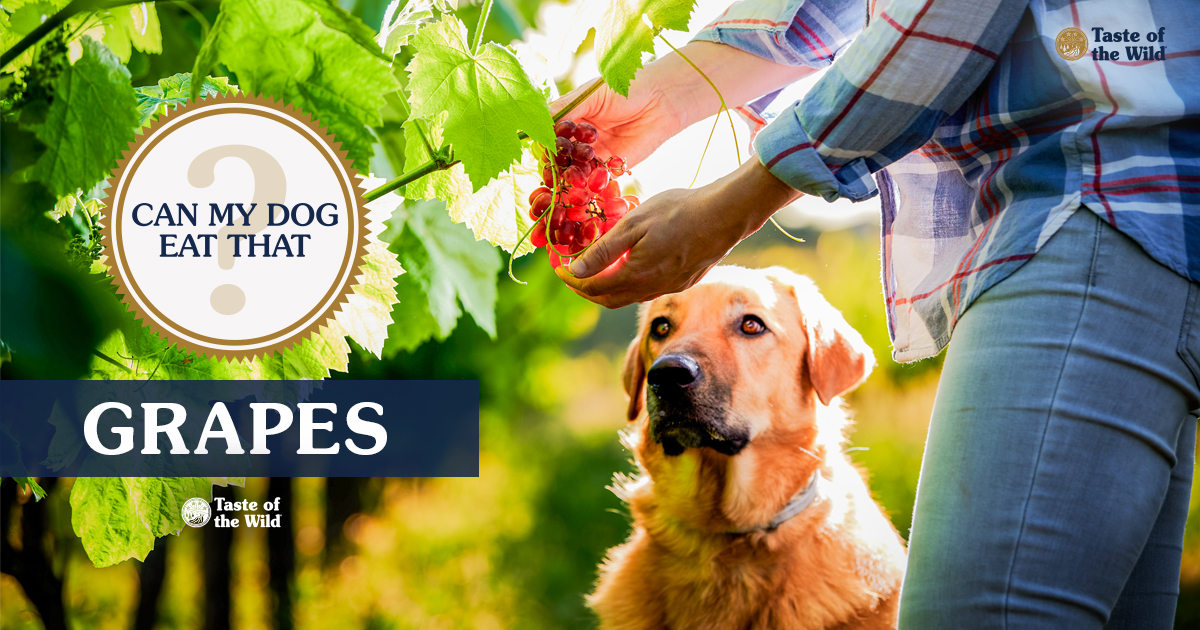
Your dog should never, ever, eat grapes. They can be toxic to dogs, potentially leading to acute kidney failure and even death. And they’re an obvious choking hazard. That goes for all grapes: red, green, seeded or seedless, organic or grown conventionally. It also includes raisins and foods that include raisins. Until recently, no one knew why, exactly, dogs and grapes shouldn’t mix. But veterinarians at the ASPCA Animal Poison Control Center discovered that tartaric acid might be the culprit.
READ MORE ABOUT DOGS AND GRAPES
CAN MY DOG EAT SWEET POTATOES?
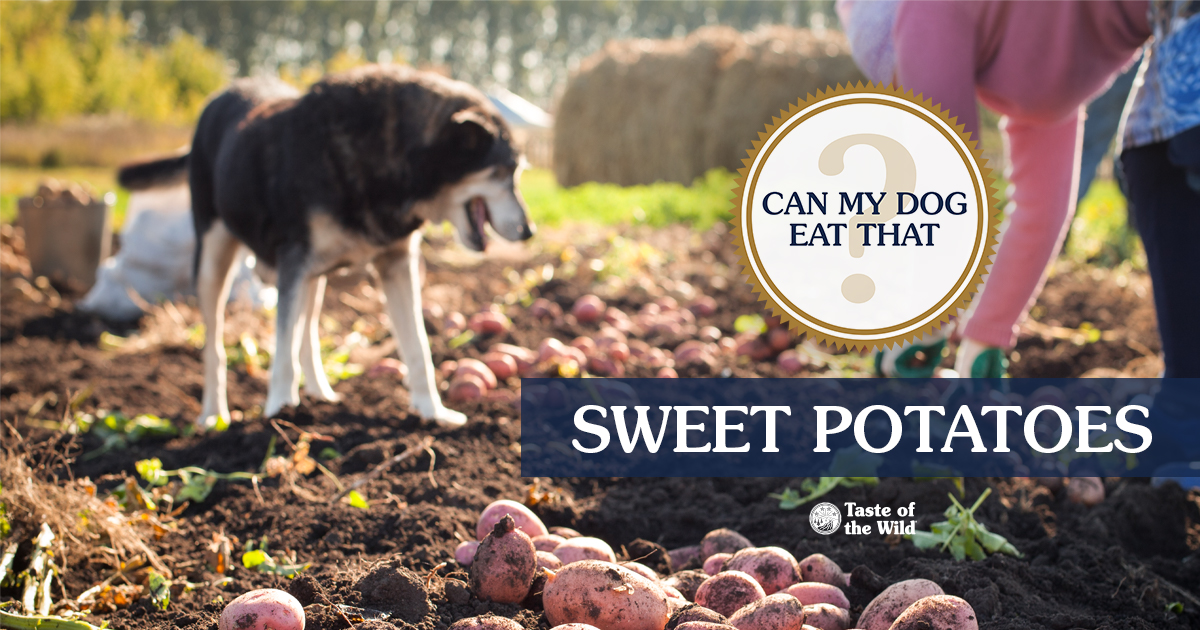
Humans seem to either love or hate sweet potatoes. Dogs, however, might not be so ambivalent. The good news is that your dog can not only eat these non-potato potatoes, they gain benefits if they do so. Sweet potatoes can provide energy, support gut health, maintain healthy eyes and support the digestive system. They’re better than safe for dogs; they’re good for them!
READ MORE ABOUT WHY SWEET POTATOES ARE SAFE FOR DOGS
CAN MY DOG EAT APPLES?
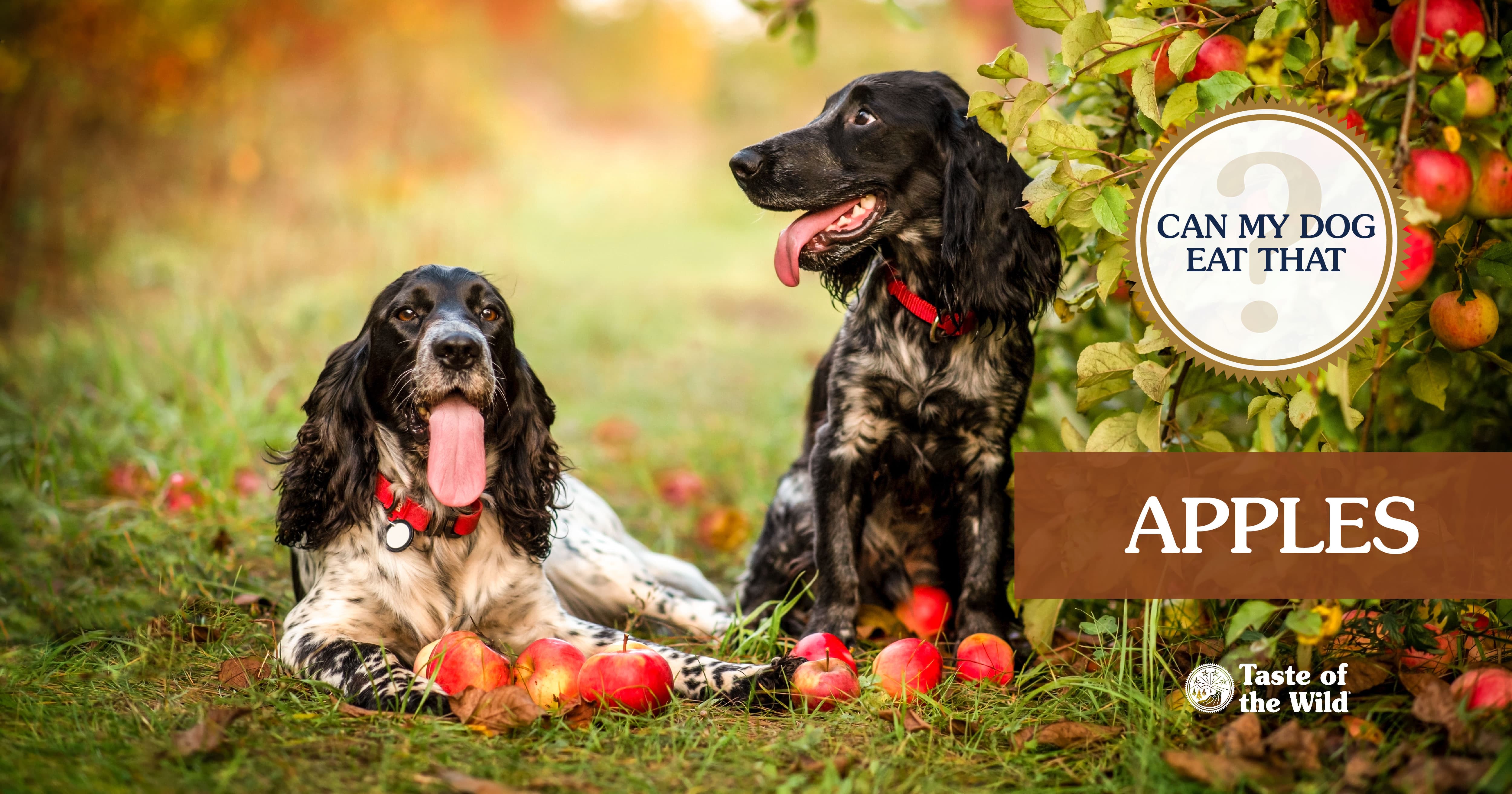
Yes, apples are a nice and healthy change of pace for your sweet-loving pooch — in moderation, of course. Apples are great sources of fiber, vitamin C and vitamin A, not to mention potassium. And an underrated aspect of feeding apple to your dog is that the rough texture works as sort of a natural tooth cleaner and breath freshener. As long as you still schedule regular dental checks, apples are a great little addition.
READ MORE ABOUT YOUR DOG AND APPLES
CAN MY DOG EAT CHEESE?
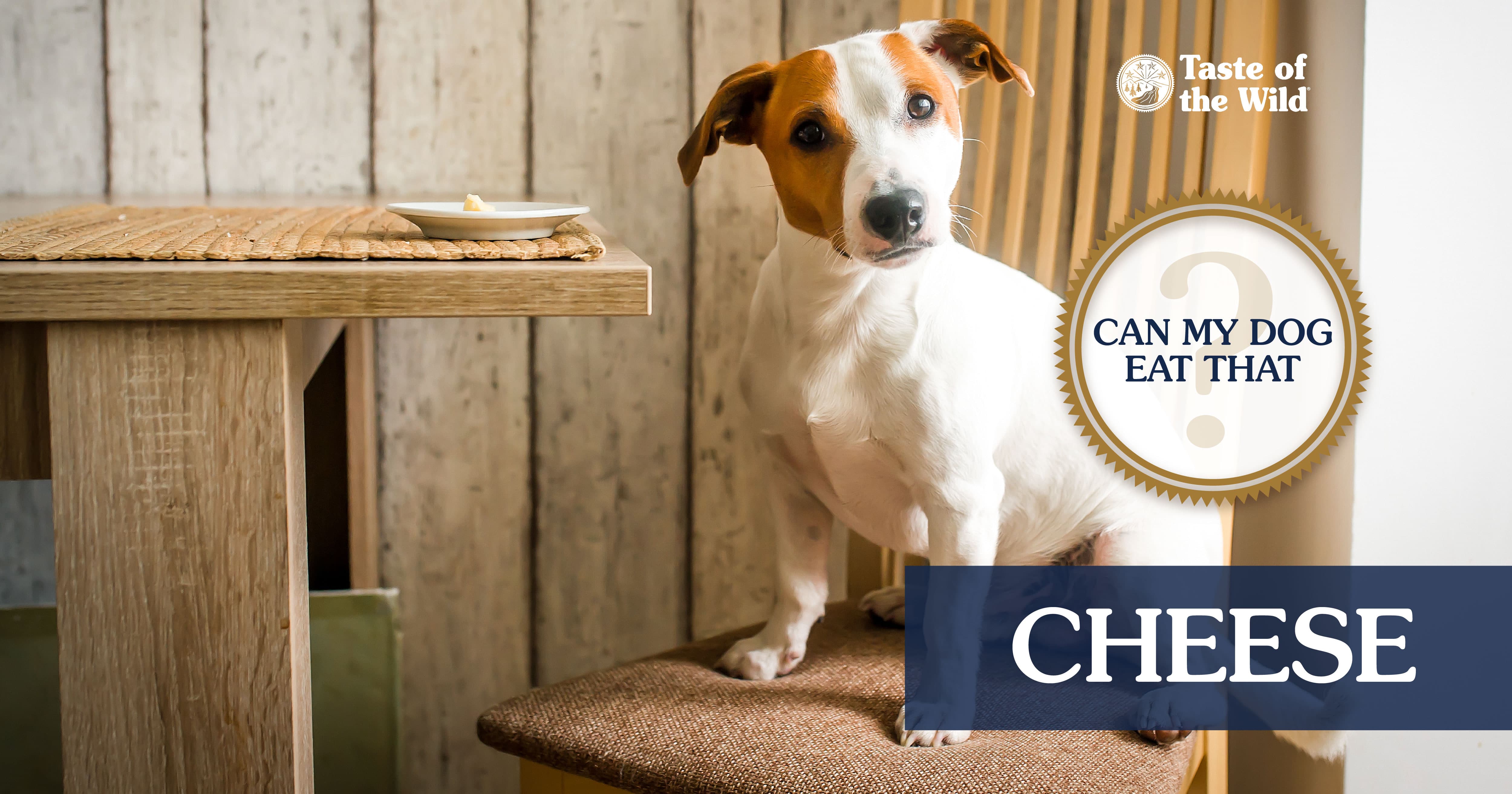
Should you pay the cheese tax without guilt? It’s a question as old as time. Or refrigerators.
Dogs love cheese. That’s a fact. The good thing is that cheese isn’t a terrible snack! Most dogs can, in moderation, eat cheese without any serious repercussions outside of possibly a stinky room a few hours later. Cheese, in general, can be a healthy, nutrient-rich treat. The high amounts of calcium are good for strong teeth and bones. Vitamins A, D and B are usually prominent. Cheese is an excellent source of protein.
READ MORE ABOUT YOUR DOG AND CHEESE
CAN MY DOG EAT BLUEBERRIES?
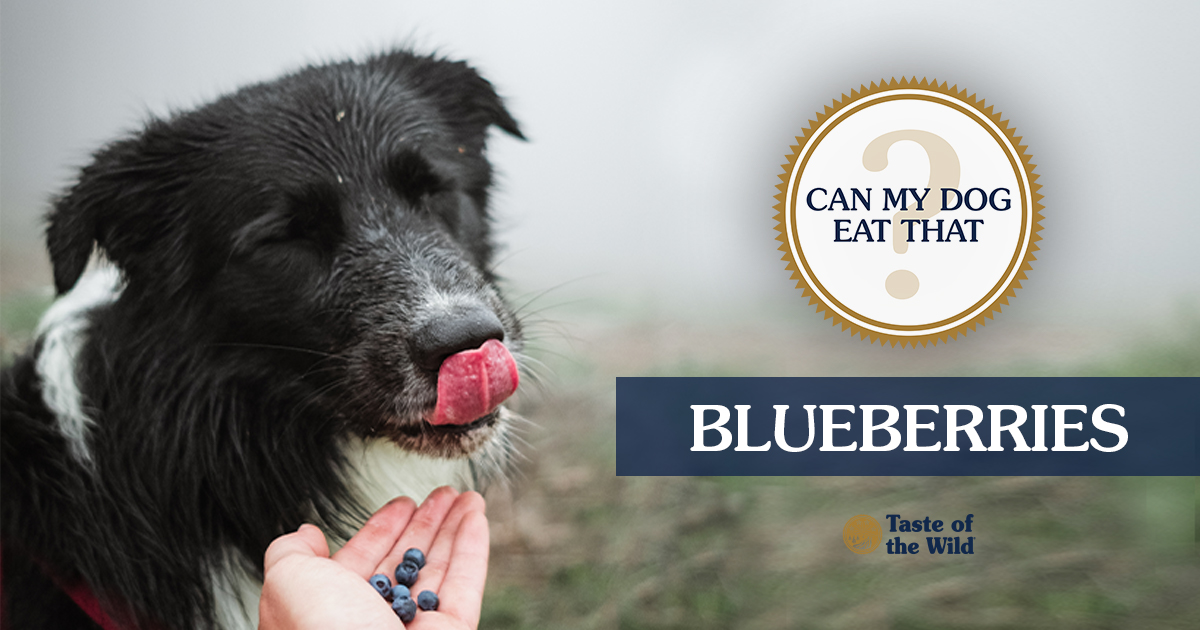
Blueberries are considered a superfood for people. But are they super for dogs?
Yes, in moderation. These nutrient-packed foods are key sources of antioxidants, omega fatty acids, fiber, vitamins, minerals and protein. To sweeten an already sweet deal, superfoods are functional ingredients in pet foods, meaning that they provide bonus benefits beyond basic nutrition when they are part of a complete and balanced diet.
READ MORE ABOUT DOGS AND BLUEBERRIES
CAN MY DOG EAT PEAS?
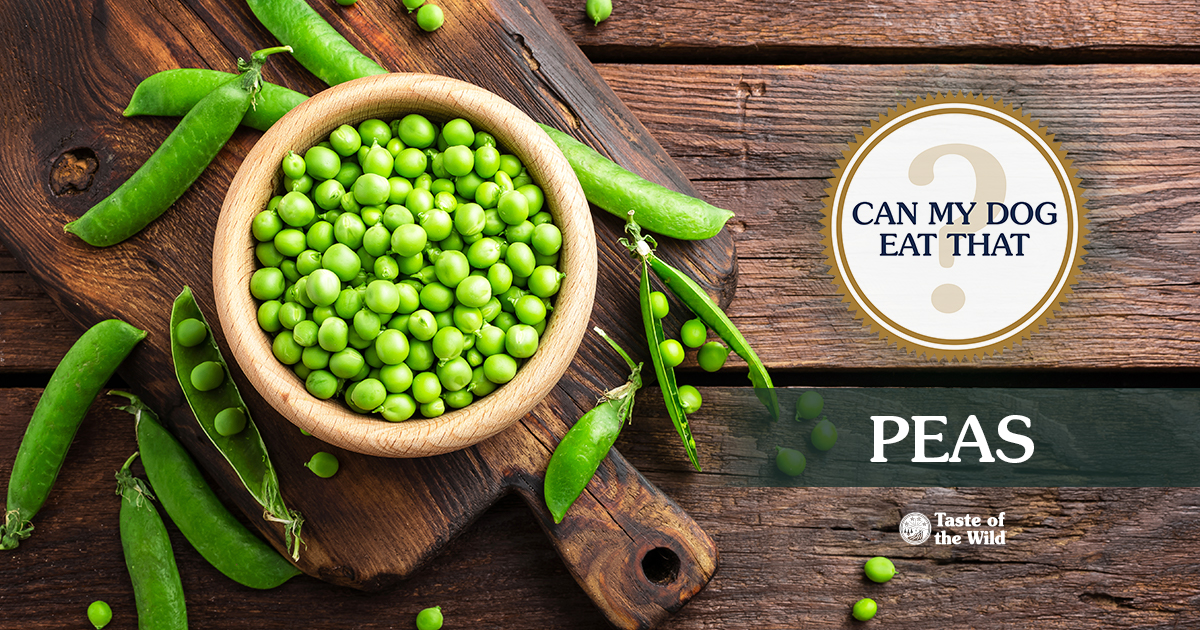
Peas are popular ingredients in pet food, for very good reason: They pack a nutritional wallop! Loaded with carbohydrates, fiber, antioxidants and protein, peas are perfect additions to pet foods. A single serving of peas provides nearly the entire daily portion of amino acids a dog needs. In general, peas are great snacks for dogs as well, but not all are created pea-qual! Click to learn the ABCs of peas for pets.
CAN MY DOG EAT AVOCADO?
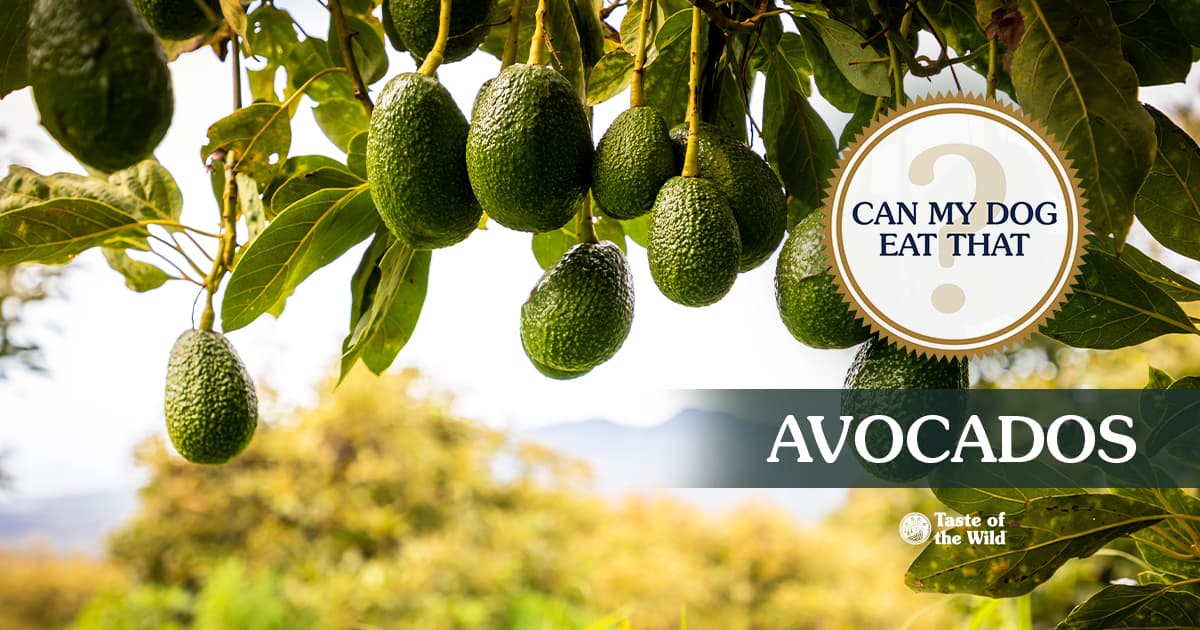
This superfood is a yes-and-no proposition for your pup. While technically a superfood, the peel and pit are super no-nos for your dog, as they are literal poison and choking hazards. But the sweet green mush inside (AKA the flesh)? It’s a nutrient- and antioxidant-dense treat that supplies great amounts of potassium, fiber and vitamin E.
READ MORE ABOUT AVOCADO AND YOUR DOG
CAN MY DOG EAT BANANAS?
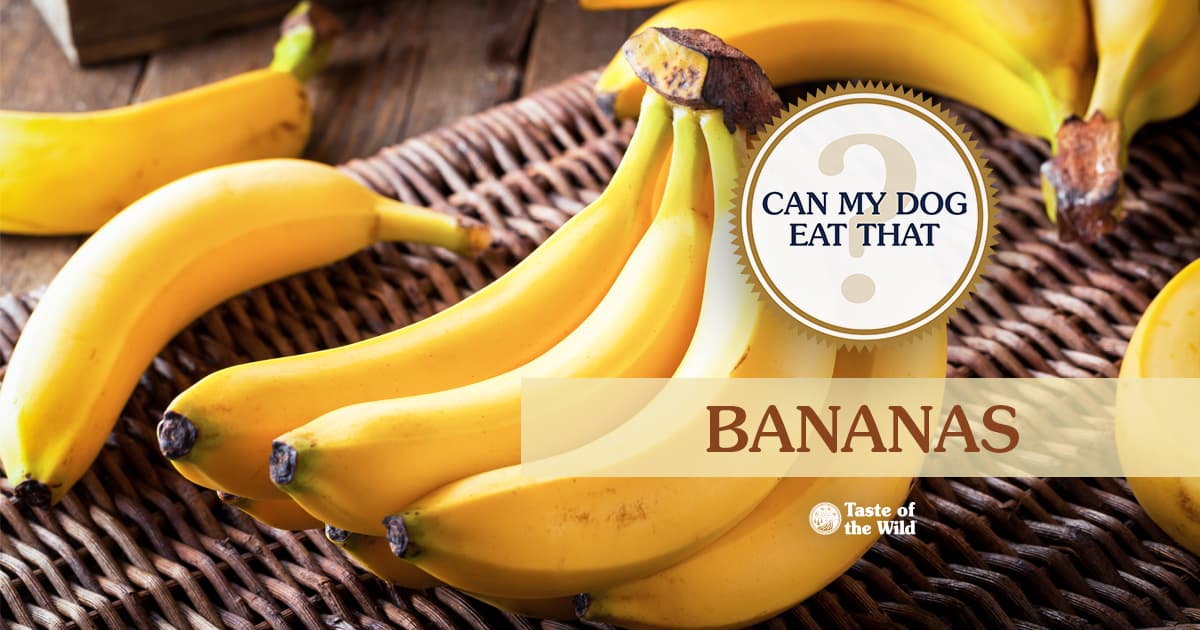
Is it b-a-n-a-n-a-s to offer your dog bananas, or are they an appeeling snack option? High in potassium, magnesium, vitamin B6, vitamin C and fiber, bananas are a good, low-calorie food that you can offer your begging buddy — IF you peel them first!
READ MORE ABOUT BANANAS AND DOGS
CAN MY DOG EAT TOMATOES?
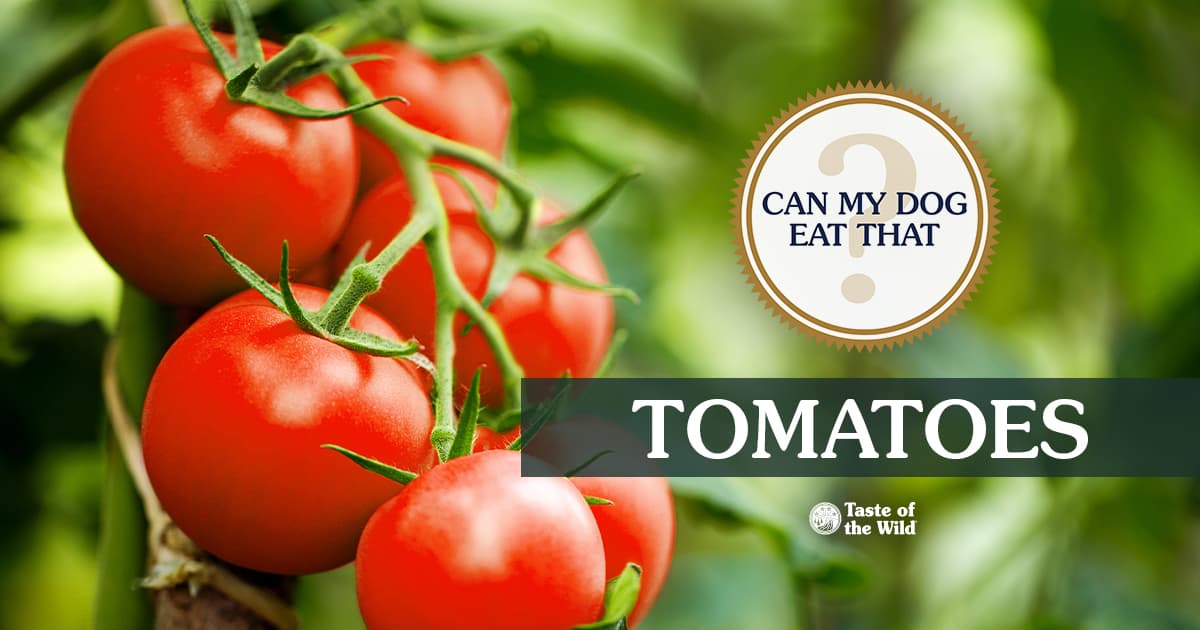
A good, ripe, dripping tomato. Who doesn’t love one on a hot day? The great news here is that if your dog is a fan of these bright red balls of nutrients, they can certainly have some. With some BUTS, of course. First, only offer the tomato itself. No other part of the tomato plant is good for your dog in any way. Second, make sure the tomato is ripe. Green parts of the tomato plant, and green tomatoes themselves, contain tomatine, a toxin that can cause upset stomachs. And no one wants to ruin their nice summer day with an upset stomach!
READ MORE ABOUT TOMATOES AND YOUR DOG
CAN MY DOG EAT EGGS?
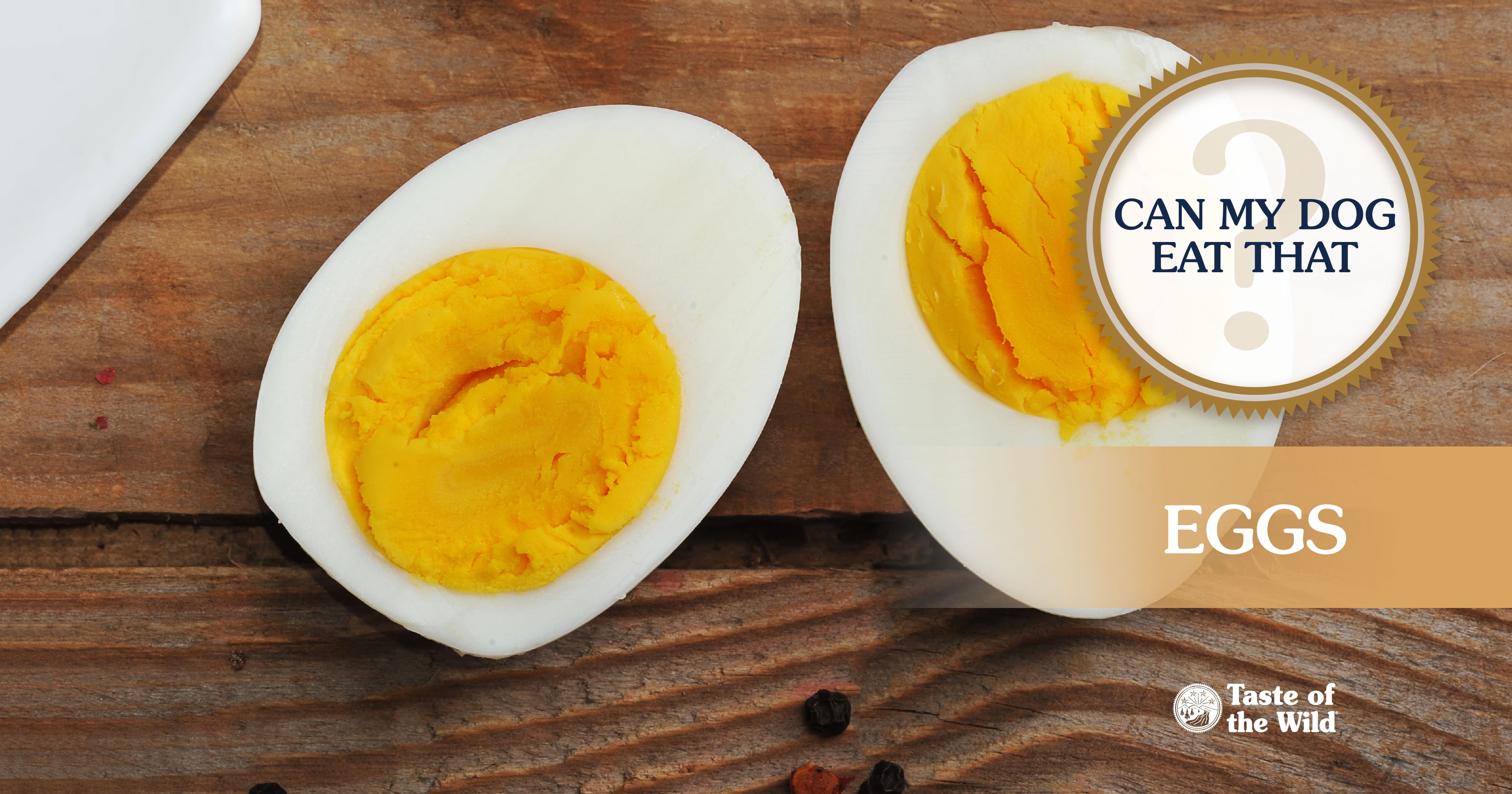
A nice cooked egg is EGGzactly what the dogtor ordered for snack time. Eggs are high in protein (which is why they are often included in pet food), and they’re also a good source of minerals, vitamins and fatty acids. The high protein content of eggs can be an issue in the weight department, so ask your veterinarian how often to feed eggs to your dog.
CAN MY DOG EAT PUMPKIN?
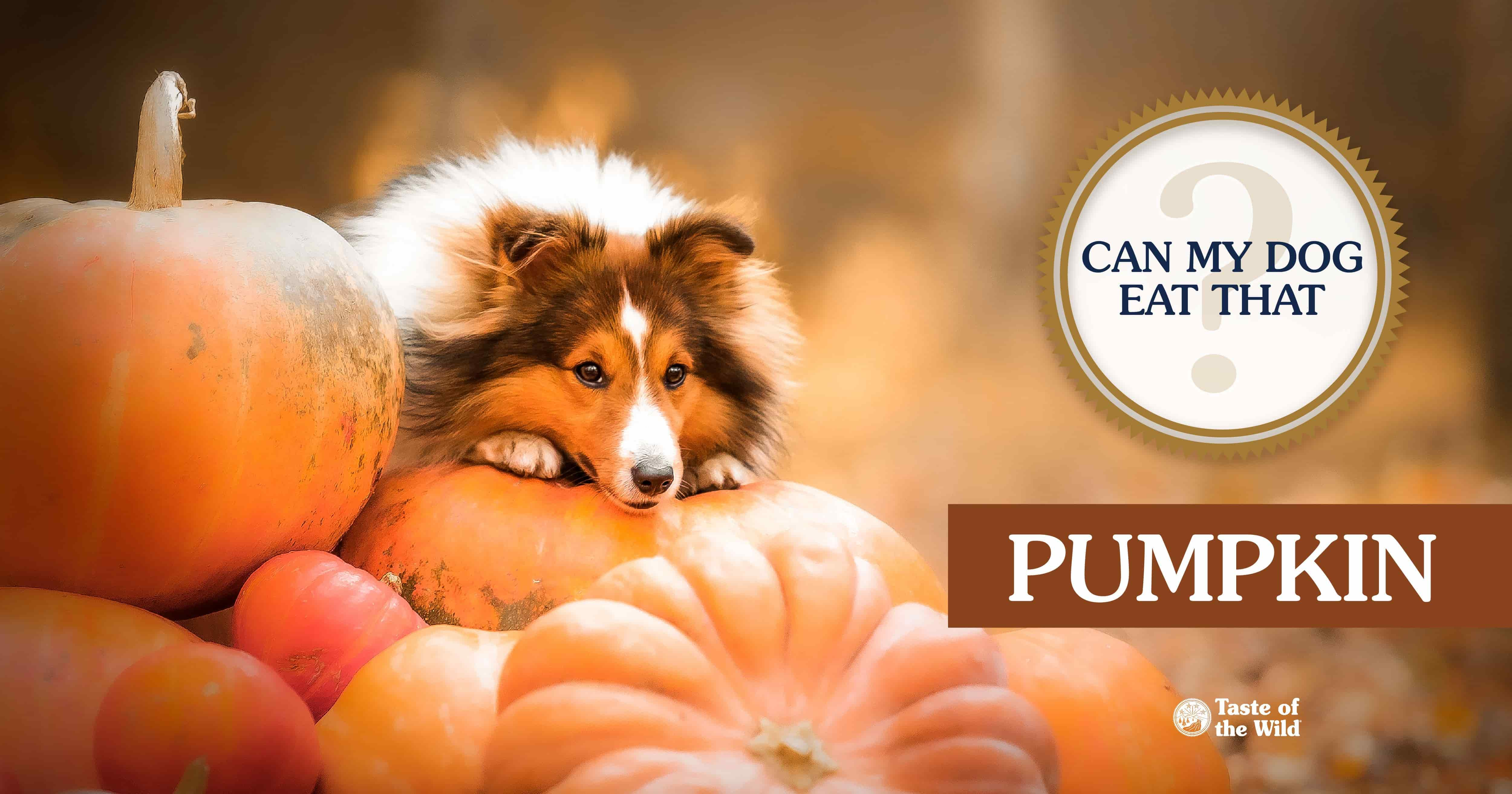
Is pumpkin a great idea for dogs? It sure is! Our most festive orange fruit offers high fiber content and plenty of antioxidants, and it’s loaded with vitamins and minerals. Vitamin A supports healthy vision, while the high levels of vitamin C are another boost to the immune system. Meanwhile, magnesium supports easy digestion and zinc helps the skin and coat look its best. Prepared properly, pumpkin will have you asking your dog, “Orange you glad we gave you some?”
READ MORE ABOUT DOGS AND PUMPKIN
CAN MY DOG EAT CINNAMON?
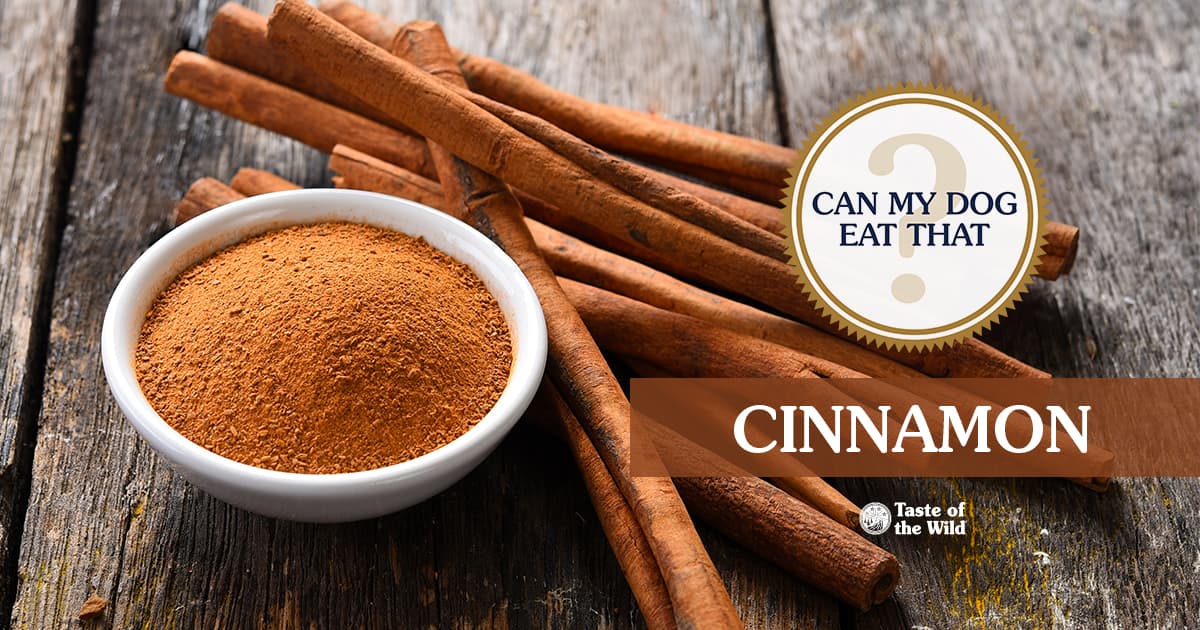
Is cinnamon a spice that makes everything nice for your dog? Well, it IS a spice, and dogs traditionally aren’t down with the spicy. That said, cinnamon isn’t toxic to dogs, so there’s no reason to panic if they swipe a snickerdoodle or two. Eaten in small amounts, cinnamon won’t hurt your dog and might even taste good to them. But if they get the powder form in their nose, sneezing might ensue!
READ MORE ABOUT YOUR DOG AND CINNAMON
CAN MY DOG EAT SNOW?
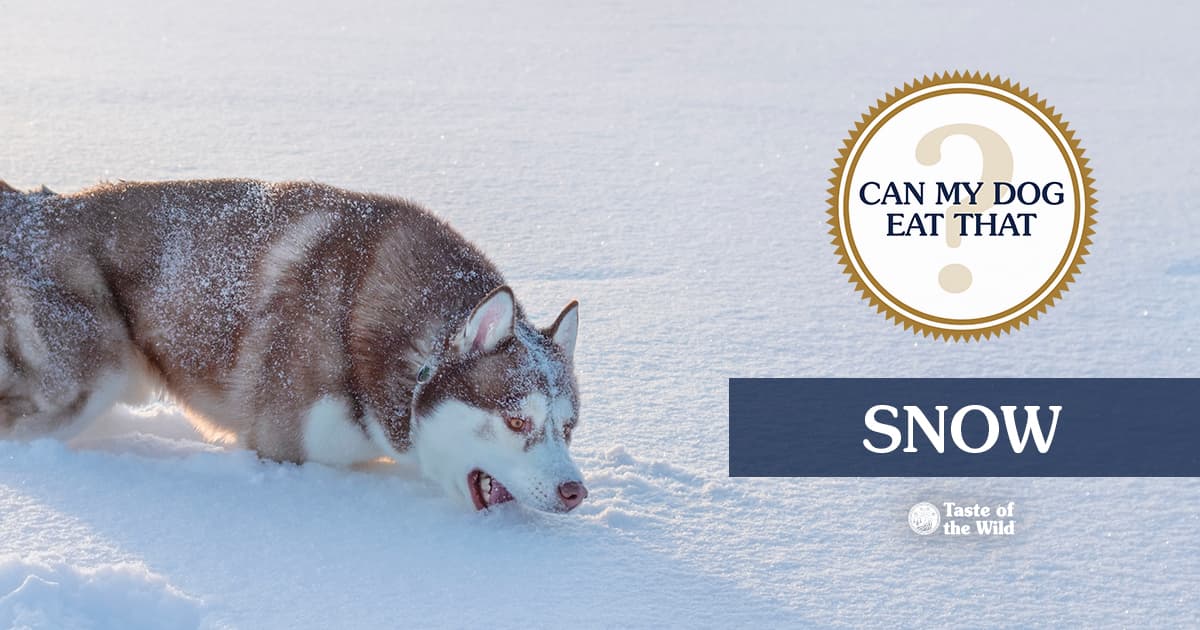
It’s just frozen water. Snow can’t possibly be bad for my dog, right?
Wellllll…it’s a maybe. If all your dog is eating is snow and it’s not in crazy amounts, then yes, a few flakes on the tongue to celebrate the season is perfectly fine. A chilly mouthful of newly fallen white stuff won’t harm anyone and might even help, mood-wise. But if your canine companion likes to go deep in their love for snow, you might need to intervene. Dirt, rocks, sticks…who knows what is lurking beneath the surface. And if the snow is any color but white? SNOW WAY!
READ MORE ABOUT DOGS EATING SNOW
CAN MY DOG EAT POPCORN?
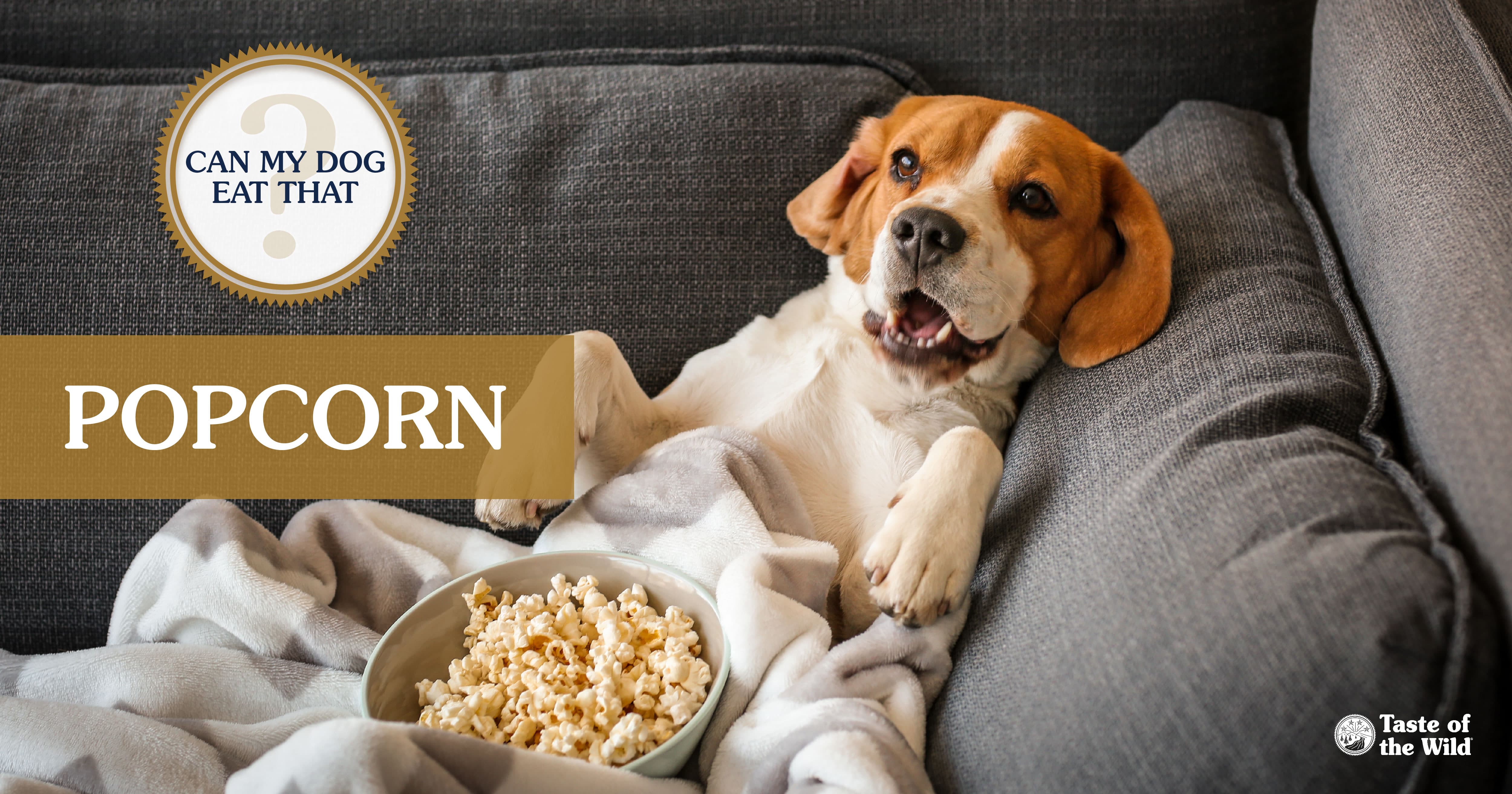
Can your dog eat popcorn? Sure they can, if we’re talking plain, unsalted and unbuttered popcorn. It might even be good for them, offering small amounts of fiber, vitamins and minerals. If boring ol’ plain popcorn is your dog’s snack of choice, a small bowl of air-popped corn with no toppings is perfectly acceptable.
READ MORE ABOUT DOGS AND POPCORN
CAN MY DOG EAT WATERMELON?
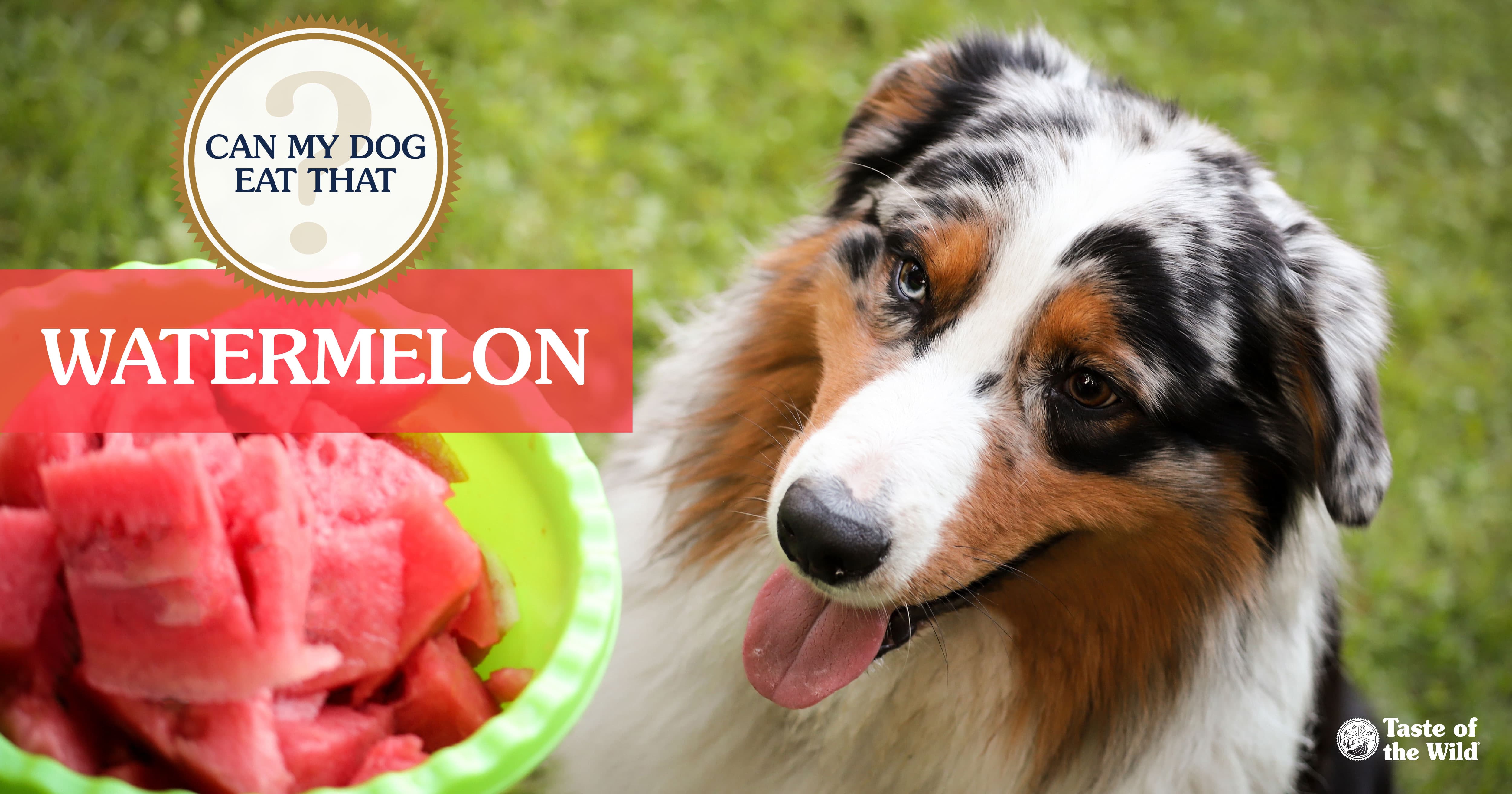
It’s a hot summer day and everyone at the pic-a-nic is munching on cool, juicy watermelon. And your dog is just sitting there salivating. Can they have some of nature’s sweetest treat? They sure can, provided (as always) that it’s prepared properly. No rinds, cut the meat into small hunks and make sure there are no seeds, and your dog will be a sticky mess in no time!
READ MORE ABOUT DOGS AND WATERMELON
CAN MY DOG EAT A HOT DOG?
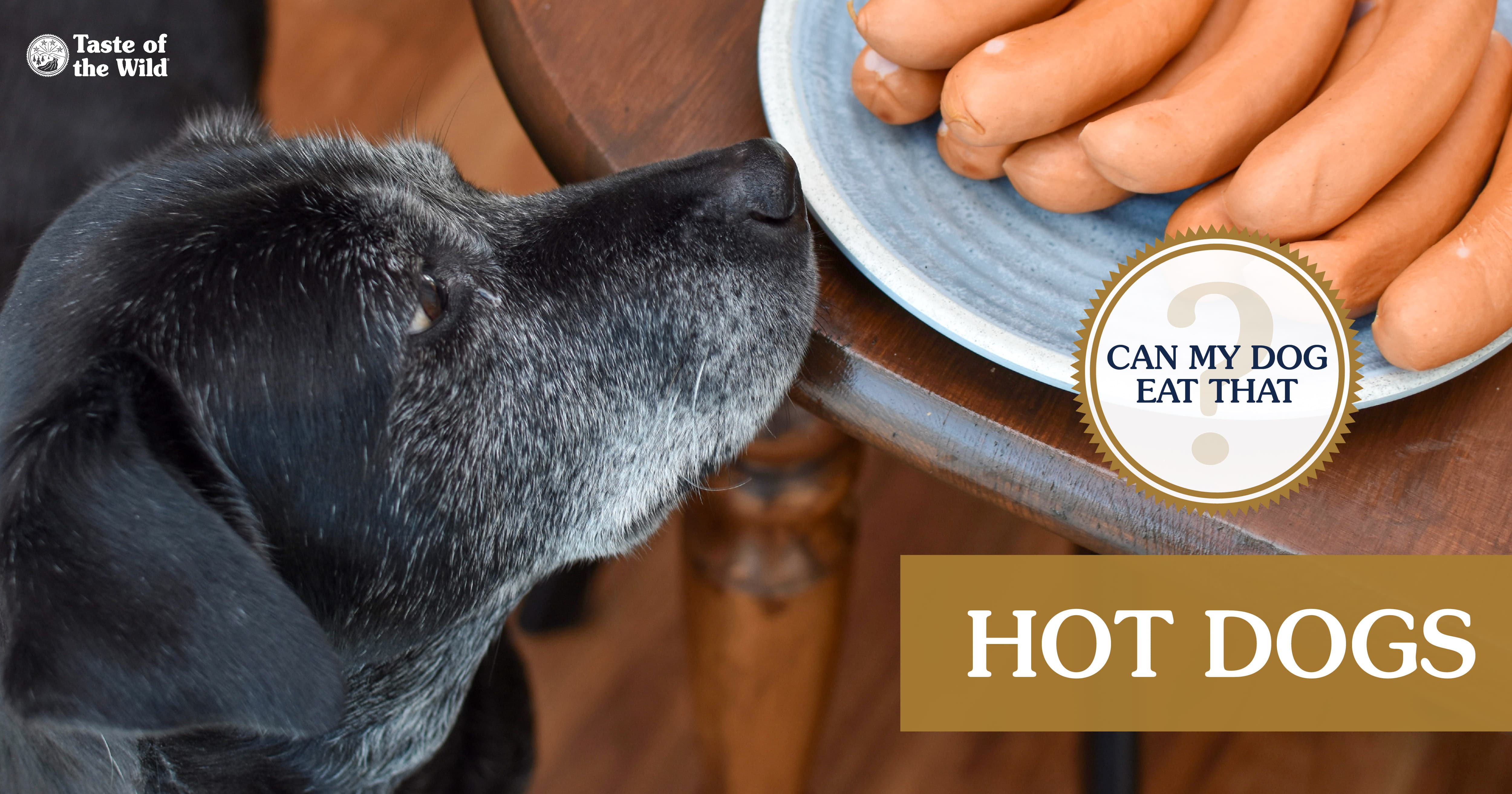
Just imagine a greasy, salty hot dog and you can probably guess that they aren’t the best foods for your dog. In small amounts and cut into bite-sized chunks, a hot dog usually won’t to do any lasting damage to your normal-temperature dog, but an upset stomach, vomiting or diarrhea isn’t out of the ordinary. Can they eat one? Sure. Should they? Probably not!
READ MORE ABOUT DOGS AND HOT DOGS
CAN MY DOG EAT PEOPLE DRINKS?
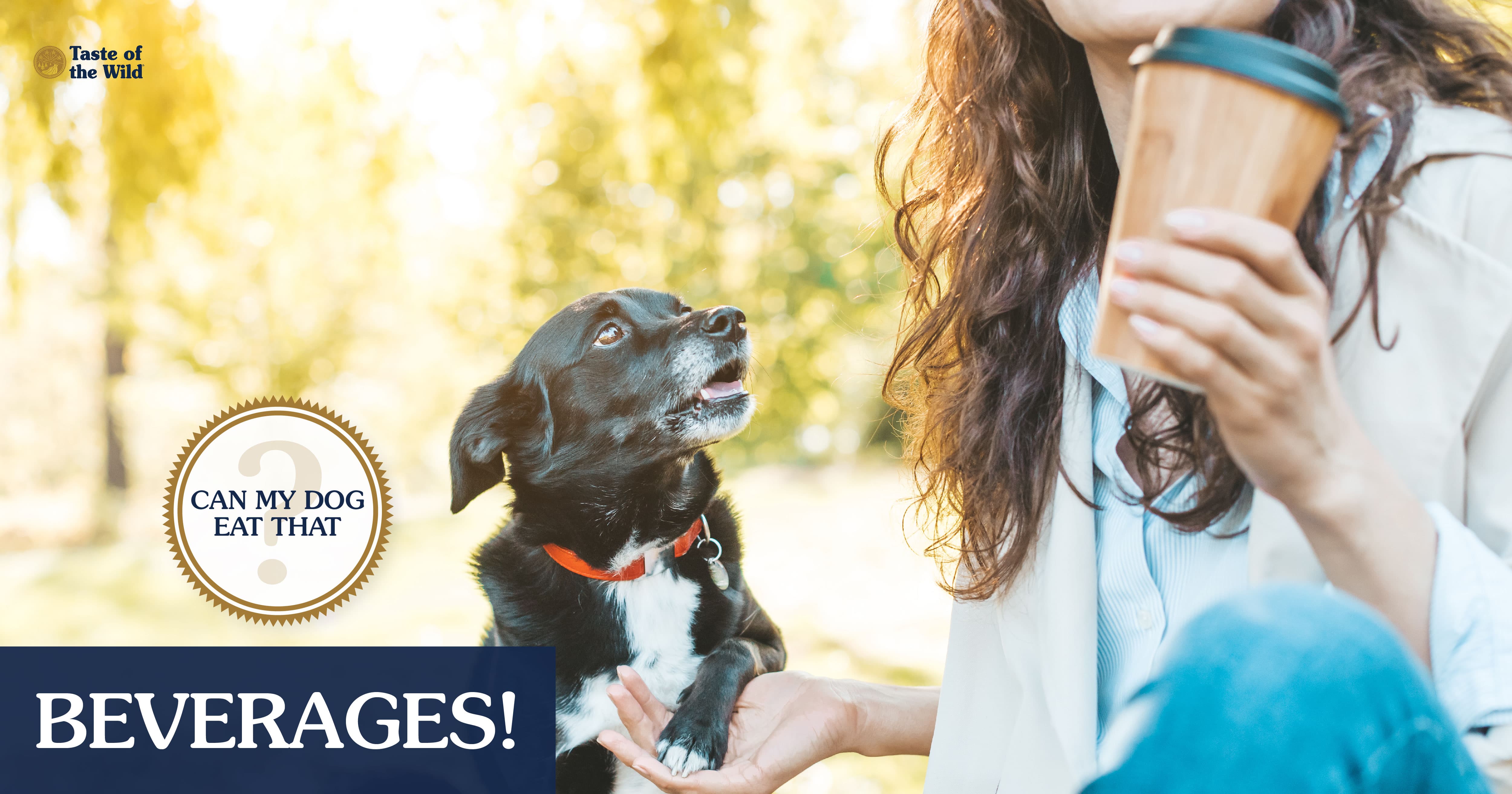
With such a bountiful bevy of beverages available for human consumption, do you ever wonder if your dog looks up from their water bowl, jealous of your pumpkin-latte-cinnamon-sprinkled carbonated soda? Are you ever tempted to give them a sip? Here’s a primer on whether your dog can drink some of our more popular people drinks.
READ MORE ABOUT DOGS AND BEVERAGES
Some dogs are picky and aren’t too awfully interested in anything but dog food. Other dogs will literally eat anything. This ongoing feature will continually add sections and links that detail why or why not your dog should eat certain foods. We’ll cover why they should avoid seemingly innocent foods (like grapes!) because they’ll make a dog sick, but we’ll also explain why some not-so-obvious foods, like blueberries, end up as important ingredients in many dog foods. No matter what, always remember that your dog’s stomach can be just as sensitive, if not more, than a human’s, so if your dog eats something questionable, call your veterinarian immediately. Your dog’s health matters, so we want to make sure that you offer quality food and a healthy snack.
Check back often!
The information in this blog has been developed with our veterinarian and is designed to help educate pet parents. If you have questions or concerns about your pet's health or nutrition, please talk with your veterinarian.
